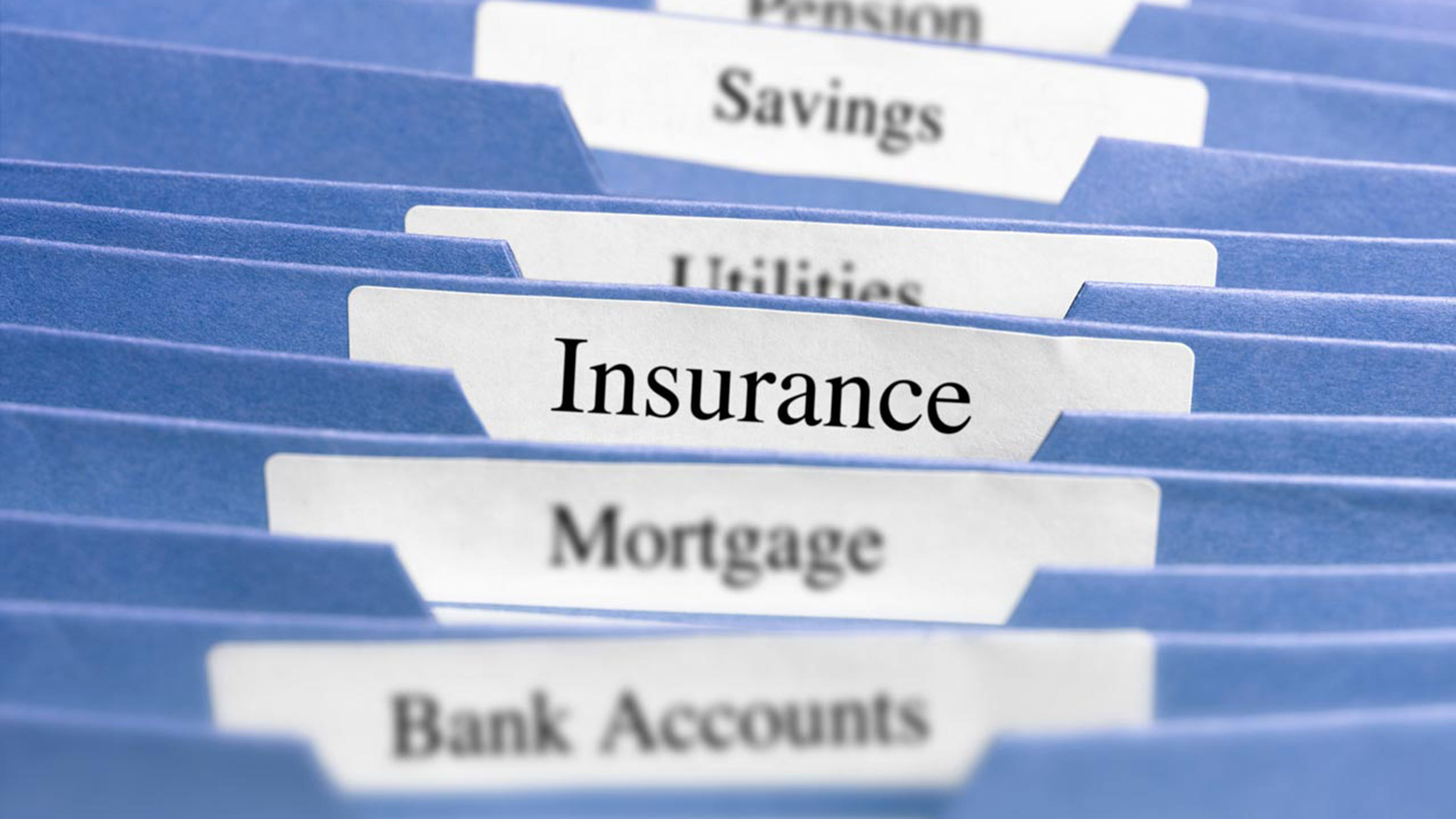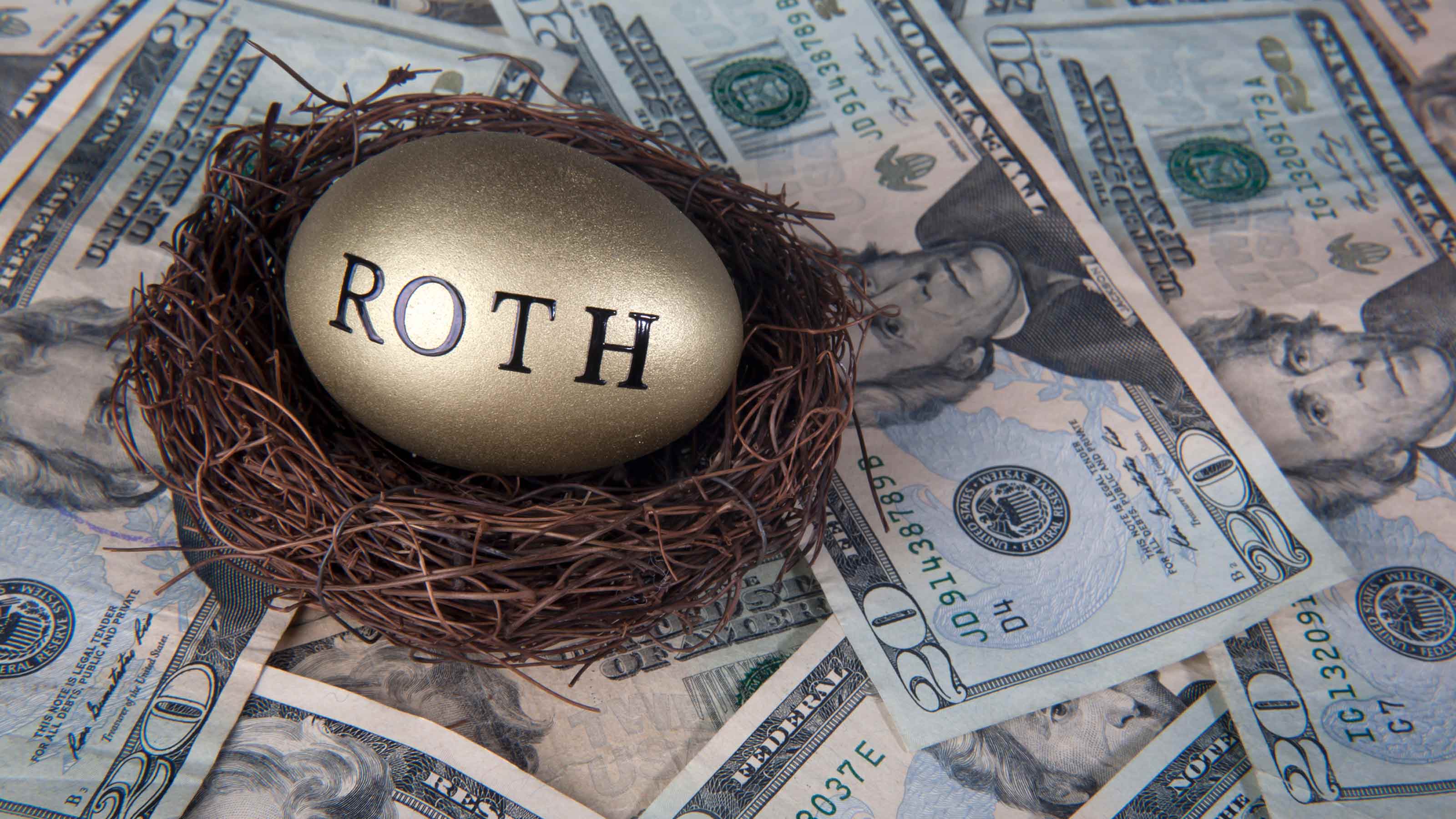10 Ways You Could Avoid the 10% Early Retirement Penalty
You’ve saved diligently in your 401(k), and you wouldn’t mind tapping into it – but you’re not age 59½ yet, so you could have to pay the IRS a 10% penalty on your withdrawal. There are exceptions to that rule, though. Here are 10 of them.


Profit and prosper with the best of Kiplinger's advice on investing, taxes, retirement, personal finance and much more. Delivered daily. Enter your email in the box and click Sign Me Up.
You are now subscribed
Your newsletter sign-up was successful
Want to add more newsletters?

Delivered daily
Kiplinger Today
Profit and prosper with the best of Kiplinger's advice on investing, taxes, retirement, personal finance and much more delivered daily. Smart money moves start here.

Sent five days a week
Kiplinger A Step Ahead
Get practical help to make better financial decisions in your everyday life, from spending to savings on top deals.

Delivered daily
Kiplinger Closing Bell
Get today's biggest financial and investing headlines delivered to your inbox every day the U.S. stock market is open.

Sent twice a week
Kiplinger Adviser Intel
Financial pros across the country share best practices and fresh tactics to preserve and grow your wealth.

Delivered weekly
Kiplinger Tax Tips
Trim your federal and state tax bills with practical tax-planning and tax-cutting strategies.

Sent twice a week
Kiplinger Retirement Tips
Your twice-a-week guide to planning and enjoying a financially secure and richly rewarding retirement

Sent bimonthly.
Kiplinger Adviser Angle
Insights for advisers, wealth managers and other financial professionals.

Sent twice a week
Kiplinger Investing Weekly
Your twice-a-week roundup of promising stocks, funds, companies and industries you should consider, ones you should avoid, and why.

Sent weekly for six weeks
Kiplinger Invest for Retirement
Your step-by-step six-part series on how to invest for retirement, from devising a successful strategy to exactly which investments to choose.
Retirement is something each of us must plan for. Not surprisingly, you want to make sure you’ll have enough income to last throughout your lifetime. Theoretically, if you plan well, you could even retire early. Perhaps you’ve sold your business for a profit, maximized your retirement account contributions, invested in non-qualified accounts, and own multiple rental properties.
In such a perfect scenario, you could take a blended distribution from various accounts and investments, allowing your money to continue to grow in tax-sensitive ways. On the other hand, taking distributions from your retirement accounts before age 59½ could cause you to owe the IRS a 10% early distribution penalty. However, there are a few conditions in which the government will waive that 10% early retirement penalty.
Before I continue, I’d like to make one thing clear. The purpose of this article is to inform you of ways you might be able to avoid the 10% income tax penalty. If you take money from your qualified retirement accounts early, you will still pay ordinary income taxes on that money. You cannot avoid that.
With that out of the way, let’s take a look at some of the ways you might be able to avoid the early retirement penalty.

No. 1: IRA Withdrawal for Medical Expenses
Life is full of surprises. Some are great, but others can cause major problems. Oftentimes, surgeries, hospitalizations and accidents are unpredictable circumstances. Adding to the stress of these moments are the significant medical expenses they can bring. Although your health insurance should offset some of those costs, you could still owe hundreds or even thousands of dollars out of pocket. What do you do if you’re on a tight monthly budget? How do you pay for those expenses if billing companies won’t accept small monthly payments?
Fortunately, you can make a withdrawal from your traditional IRA for significant medical expenses without having to pay the 10% early withdrawal tax penalty. Keep in mind that there are a few stipulations. You don’t want to withdraw small increments of money from your IRA to pay for medications or occasional doctor visits. Instead, those expenses should come from your normal monthly budget.
To withdraw money and avoid the 10% penalty, your medical expenses must exceed 10% of your adjusted gross income. Likewise, you must use the money to cover expenses that your health insurance did not cover.

No. 2: IRA Withdrawal to Pay for Health Insurance
Similarly, you can pay for health insurance premiums using IRA dollars if you meet certain conditions. IF you lose your job AND collect unemployment compensation for 12 consecutive weeks, you can use funds from your IRA to pay for health insurance for you, your spouse and your dependents.
Once again, there’s a catch. To use IRA funds for this, you MUST take the distribution within the same year you received the unemployment compensation.

No. 3: IRA Withdrawal for Disability
Unfortunately, many of my clients have had to take early distributions from their IRAs due to disability. If you become disabled, you may be eligible for Social Security Disability Insurance (SSDI) and/or Supplemental Security Income (SSI) benefits, but most SSDI recipients receive between $800 and $1,800 per month. The average monthly benefit for 2021 is only $1,277. Anything is better than nothing, but if you’re a business owner, you’re probably used to taking home significantly more than that.
Therefore, if you become disabled AND you have a physician who signs off on the severity of your condition, you could take money out of your IRA, penalty-free, to supplement your SSDI income. While I hope you never have to use this option, at least you know it’s a possibility.

No. 4: IRA Withdrawal for a First Home Purchase
On a more uplifting note, you can take an early withdrawal from your IRA for the purchase of your first home without incurring the 10% penalty. I know you may be nearing retirement, but it’s possible that you’ve never owned a home. Perhaps you’ve rented apartments or houses your entire life due to work-related travel, commutes or other circumstances. I’ve even seen instances where a person has lived in a house they inherited from a family member and then sold it before moving into a smaller home for their retirement.
If you’re buying or building your first home, you can withdraw $10,000 if you’re single, or $20,000 if you’re married (if you both have IRAs) from your traditional IRA.

No. 5: IRA Withdrawal through a 72(t) Calculation
According to Rule 72(t), section 2 of the Internal Revenue Code, IRA owners can withdraw funds penalty-free, IF they take them as annuity payments. To do this, you must have an actuary run calculations to determine what the substantially equal periodic payments (SEPPs) will be. Additionally, you must take the payments for the greater of either five years or until you turn 59½.

No. 6: 401(k) Withdrawals
If you have a 401(k) at your job, but leave or retire from that job, between the ages of 55 and 59½, you could avoid the penalty by keeping your money in the 401(k) and making withdrawals from it. This strategy is often called the Rule of 55. However, if you roll the funds into an IRA, you would no longer be able to withdraw them without subjecting yourself to the early retirement penalty.

No. 7: 401(k) Loans
Another method you could use is to take a loan from your 401(k). Loan provisions apply to 50% of your account balance, up to $50,000. Therefore, if you have an account at work that has $100,000 or more in it, you can take out a loan for up to $50,000. However, if you only have $20,000, your maximum loan, from that 401(k), is $10,000.
I actually used this method with a client once. He retired at 58 years old, only one year from 59½ and needed a little bit of money. So he borrowed money through a loan provision in his work 401(k). Instead of paying taxes on his withdrawal when he took the loan (because he was in a much higher tax bracket because of his pre-retirement income), he waited until he rolled over the 401(k) into an IRA at 59½. Then, he paid taxes on the rollover.

No. 8: Inherited IRA Withdrawals
Inherited IRAs are becoming more and more common. If you’re not familiar with this method, let’s say that your parents or an aunt or uncle passed away and left you an IRA for an inheritance. If you receive that before you are 59½ years old, you can take the money out of that inherited IRA penalty-free. You will still have to pay ordinary income tax, but you’ll be exempt from the 10% early distribution penalty.

No. 9: Roth IRA Contribution Withdrawals
Any money you put into a Roth IRA is after-tax money. Because you’ve already paid taxes on that money, you can pull your contributions out of a Roth IRA tax-free and penalty-free anytime. However, you can’t take your earnings (money that has grown from your contributions) out before age 59½ or before the earnings have been in the account for five years. On the other hand, you can always withdraw from your Roth IRA contributions.

No. 10: Roth IRA Qualified Education Expense Withdrawals
Last but not least, you can pull money from your Roth IRA to pay for qualified education expenses for yourself or your dependents. As I stated in method No. 9, you can always pull your contributions out. However, in this case, you can also pull your earnings out early and penalty-free if you follow the rules.
If you’re blessed enough to be able to retire early, that’s fantastic! But make sure you let your pre-planning work for you. You obviously want to have enough income to last throughout your retirement, but you also need protection from events as they happen in your life. Whether you need to cover unexpected medical bills or send your children to college without racking up mountains of student debt, know your options.
While you can’t avoid paying ordinary income taxes on early retirement account withdrawals, there may be ways you could avoid paying the 10% penalty. Speak to your financial adviser to determine if any of these methods are right for your unique situation.
--
Certified Financial Planner Board of Standards Inc. (CFP Board) owns the CFP® certification mark, the CERTIFIED FINANCIAL PLANNER™ certification mark, and the CFP® certification mark (with plaque design) logo in the United States, which it authorizes use of by individuals who successfully complete CFP Board’s initial and ongoing certification requirements.
This article was written by and presents the views of our contributing adviser, not the Kiplinger editorial staff. You can check adviser records with the SEC or with FINRA.
Profit and prosper with the best of Kiplinger's advice on investing, taxes, retirement, personal finance and much more. Delivered daily. Enter your email in the box and click Sign Me Up.

Justin A. Goodbread is a CERTIFIED FINANCIAL PLANNER™ practitioner and an adviser with WealthSource® Knoxville. After years of working in a large firm, he ventured out on his own in 2009, starting Heritage Investors, and eventually joining WealthSource® Partners LLC in 2022. As a serial small-business owner, Goodbread has bought and sold multiple businesses. He uses this experience, along with his continuing education, to help business owners grow and sell what is often their largest asset.
-
 Nasdaq Leads a Rocky Risk-On Rally: Stock Market Today
Nasdaq Leads a Rocky Risk-On Rally: Stock Market TodayAnother worrying bout of late-session weakness couldn't take down the main equity indexes on Wednesday.
-
 Quiz: Do You Know How to Avoid the "Medigap Trap?"
Quiz: Do You Know How to Avoid the "Medigap Trap?"Quiz Test your basic knowledge of the "Medigap Trap" in our quick quiz.
-
 5 Top Tax-Efficient Mutual Funds for Smarter Investing
5 Top Tax-Efficient Mutual Funds for Smarter InvestingMutual funds are many things, but "tax-friendly" usually isn't one of them. These are the exceptions.
-
 Social Security Break-Even Math Is Helpful, But Don't Let It Dictate When You'll File
Social Security Break-Even Math Is Helpful, But Don't Let It Dictate When You'll FileYour Social Security break-even age tells you how long you'd need to live for delaying to pay off, but shouldn't be the sole basis for deciding when to claim.
-
 I'm an Opportunity Zone Pro: This Is How to Deliver Roth-Like Tax-Free Growth (Without Contribution Limits)
I'm an Opportunity Zone Pro: This Is How to Deliver Roth-Like Tax-Free Growth (Without Contribution Limits)Investors who combine Roth IRAs, the gold standard of tax-free savings, with qualified opportunity funds could enjoy decades of tax-free growth.
-
 One of the Most Powerful Wealth-Building Moves a Woman Can Make: A Midcareer Pivot
One of the Most Powerful Wealth-Building Moves a Woman Can Make: A Midcareer PivotIf it feels like you can't sustain what you're doing for the next 20 years, it's time for an honest look at what's draining you and what energizes you.
-
 I'm a Wealth Adviser Obsessed With Mahjong: Here Are 8 Ways It Can Teach Us How to Manage Our Money
I'm a Wealth Adviser Obsessed With Mahjong: Here Are 8 Ways It Can Teach Us How to Manage Our MoneyThis increasingly popular Chinese game can teach us not only how to help manage our money but also how important it is to connect with other people.
-
 Looking for a Financial Book That Won't Put Your Young Adult to Sleep? This One Makes 'Cents'
Looking for a Financial Book That Won't Put Your Young Adult to Sleep? This One Makes 'Cents'"Wealth Your Way" by Cosmo DeStefano offers a highly accessible guide for young adults and their parents on building wealth through simple, consistent habits.
-
 Global Uncertainty Has Investors Running Scared: This Is How Advisers Can Reassure Them
Global Uncertainty Has Investors Running Scared: This Is How Advisers Can Reassure ThemHow can advisers reassure clients nervous about their plans in an increasingly complex and rapidly changing world? This conversational framework provides the key.
-
 I'm a Real Estate Investing Pro: This Is How to Use 1031 Exchanges to Scale Up Your Real Estate Empire
I'm a Real Estate Investing Pro: This Is How to Use 1031 Exchanges to Scale Up Your Real Estate EmpireSmall rental properties can be excellent investments, but you can use 1031 exchanges to transition to commercial real estate for bigger wealth-building.
-
 The 8 Stages of Retirement: An Expert Guide to Confidence, Flexibility and Fulfillment, From a Financial Planner
The 8 Stages of Retirement: An Expert Guide to Confidence, Flexibility and Fulfillment, From a Financial PlannerRetirement planning is less about hitting a "magic number" and more about an intentional journey — from understanding your relationship with money to preparing for your final legacy.
